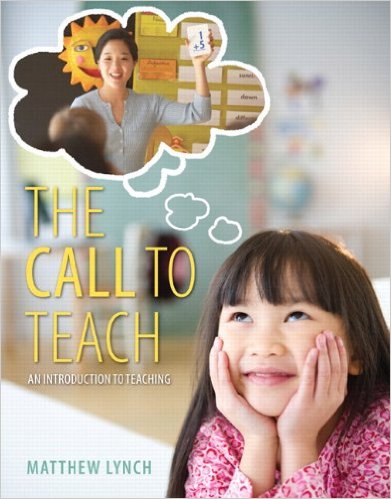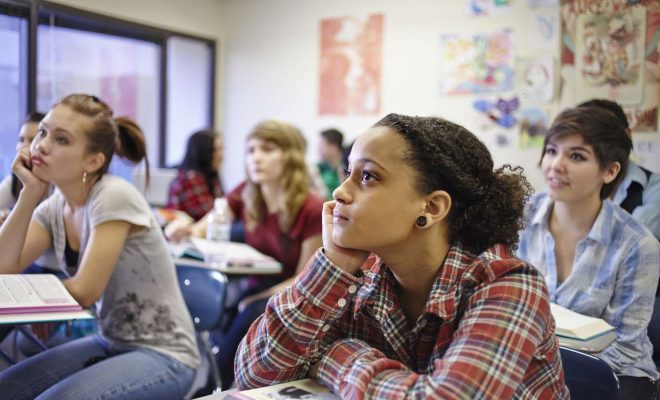5 Facts Everyone Needs to Know About the School-to-Prison Pipeline

Our nation’s public schools play an integral role in fostering talents. They also play a role in building our children’s internal worth. It is therefore not surprising that our schools can assist in reducing our nation’s prison population as well. Here are five facts everyone should know about the school-to-prison pipeline, and how to end it:
- An increased prison population costs us all money. Those of us who fall outside the group of perceived misfits who make our nation’s prison population may wonder why the school-to-prison pipeline should matter. Aside from caring about the quality of life for other individuals, there are more tangible issues that arise from this. Each federal prisoner costs taxpayers $28,284 per year, which is about $77 per day.
And that’s just the measurable cost. What isn’t measurable is the indirect impact those incarcerations have on the economy in terms of those prisoners not contributing to the work force.
- There is a link between dropping out of high school and going to prison. Sadly, over half of black young men who attend urban high schools do not earn a diploma. Of the dropouts, nearly 60 percent will go to prison at some point. There are also some eerily similar statistics for young Latino men.
In his piece “A Broken Windows Approach to Education Reform,” Forbes writer James Marshall Crotty makes a direct connection between drop-out and crime rates. He argues that if educators will simply take a highly organized approach to keeping kids in school, it will make a difference in the crime statistics of the future. He says:
“Most importantly, instead of merely insisting on Common Core Standards of excellence, we must provide serious sticks for non-compliance. And not just docking teacher and administrative pay. The real change needs to happen on the student and parent level. ”
He cites the effectiveness of states not extending driving privileges to high school dropouts or not allowing athletic activities for students who fail a class. With higher stakes associated with academic success, students will have more to lose if they walk away from their K-12 education. And the higher the education level, the lower the risk of criminal activity, statistically speaking.
- Black and Latino men get the short end of the stick as far as this phenomenon is concerned. Aside from the dropout statistics mentioned before, an estimated 40 percent of all students that are expelled from U.S. schools are black. This leaves black students over three times more likely to face suspension than their white peers. When you add in Latino numbers, 70 percent of all in-school arrests are black or Latino students.
If you want to see the correlation between these school-age statistics and lifetime numbers, consider this: 61 percent of the incarcerated population are black or Latino – despite the fact that these groups only represent 30 percent of the U.S. population. Nearly 68 percent of all men in federal prison never earned a high school diploma. The fact that the U.S. has the highest incarceration rate in the world is no surprise and the road to lockup starts in the school systems.
- Expectations influence student achievement and behavior. Though all people have genetic predispositions, it is ultimately the environment that encompasses the formative years that shapes lives.
In a blog post by Sally Powalski, a 10-year employee of juvenile facility in the State of Indiana, she addresses what she sees every day: young men with no expectations of improvement and therefore no motivation.
Sally says this of the young men who come through her counselor’s office:
“They have been given the message for several years that they are not allowed in regular school programs, are not considered appropriate for sports teams, and have had their backs turned on them because everyone is just tired of their behavior… Why should they strive for more than a life of crime?”
Sally hits the nail on the head with her observations. Children are just as much a product of their environments as the expectations placed on them. Parents on a first-name basis with law enforcement officials certainly influence the behavior of their children, but school authorities with preconceived negative associations create an expectation of failure too. Increasingly, educators are learning how to recognize the signs of textbook learning disabilities like ADHD or dyslexia. But what about the indirect impact that factors like poverty, abuse, neglect or simply living in the wrong neighborhood have on a student’s ability to learn? Where are the intervention programs that keep these students on academic track without removing them from the school setting?
- The current way of dealing with “problem” students is not working. When one student is causing a classroom disruption, the traditional way to address the issue has been removal – whether the removal is for five minutes, five days or permanently. Separating the “good” students and the “bad” ones has always seemed the fair, judicious approach. On an individual level this form of discipline may seem necessary to preserve the educational experience for others.
If all children came from homes that implemented a cause-and-effect approach to discipline, this might be the right answer. Unfortunately, an increasing number of students come from broken homes, or ones where parents have not the desire or time to discipline. For these students, removal from education is simply another form of abandonment and leads to the phenomenon called the “school-to-prison pipeline.”
So what’s the solution? Keeping close tabs on drop-out risks is certainly a step in the right direction when it comes to closing the school to prison pipeline. Better academic tracking, in order to notice areas of potential problems early on, and more mentorship intervention when it comes to discipline issues are also important.
Students who are at risk of dropping out of high school or turning to crime need more than a good report card. They need alternative suggestions on living a life that rises above their current circumstances. For a young person to truly have a shot at an honest life, he or she has to believe in the value of an education and its impact on good citizenship. That belief system has to come from direct conversations about making smart choices with trusted adults and peers.
What do you think K-12 schools can put in place to increase academic success and close the school to prison pipeline?



